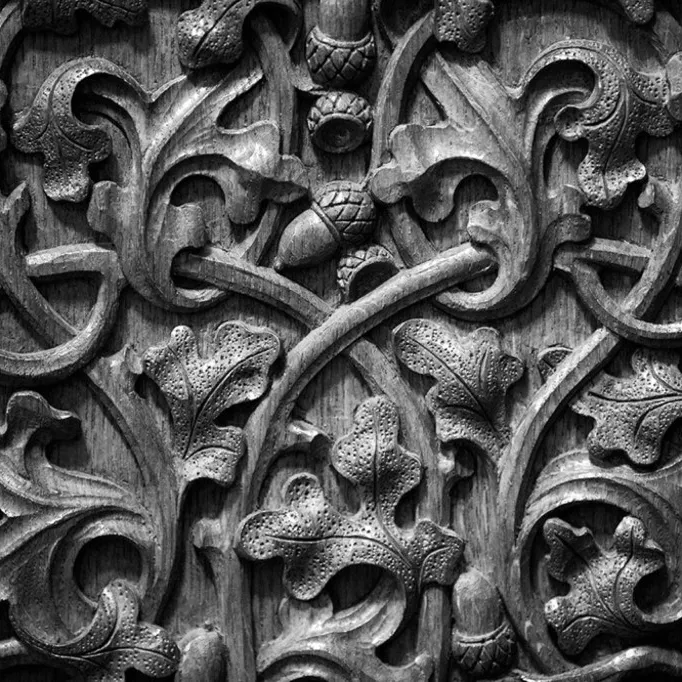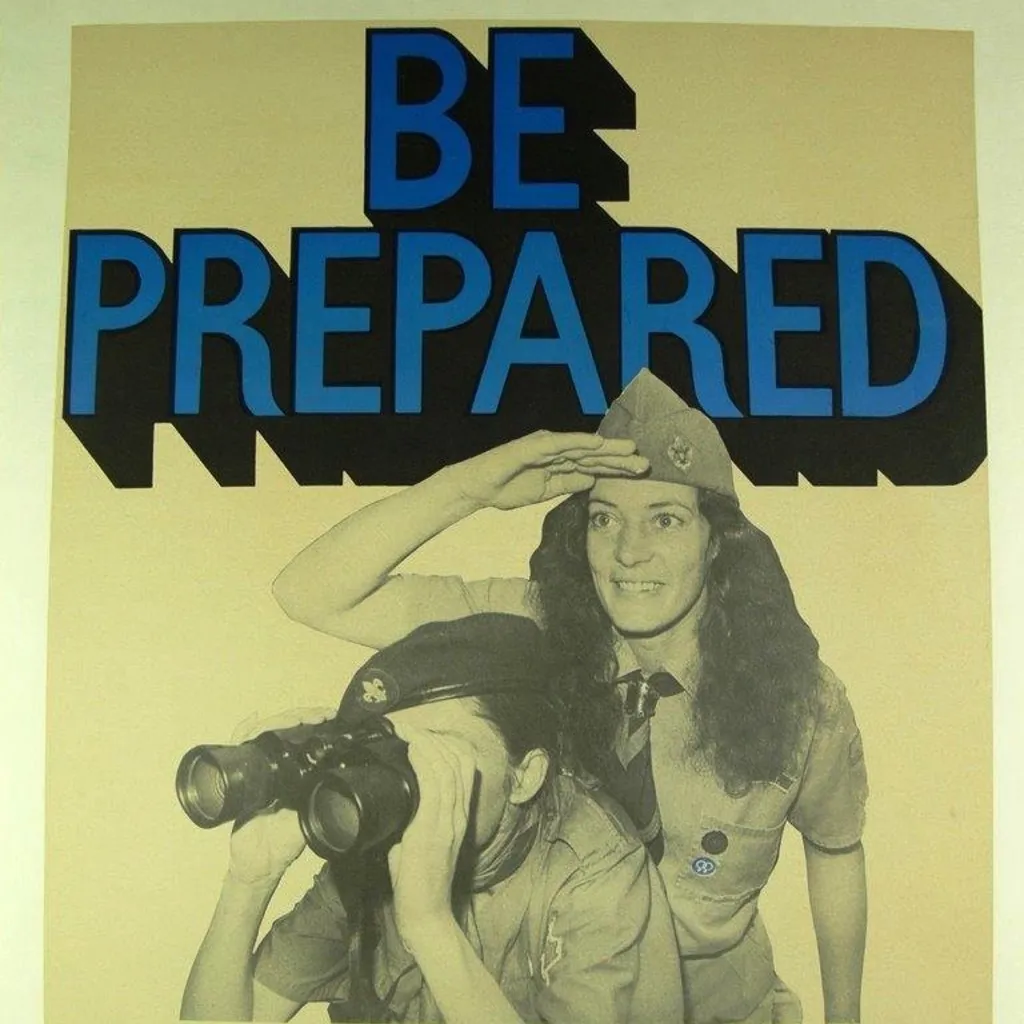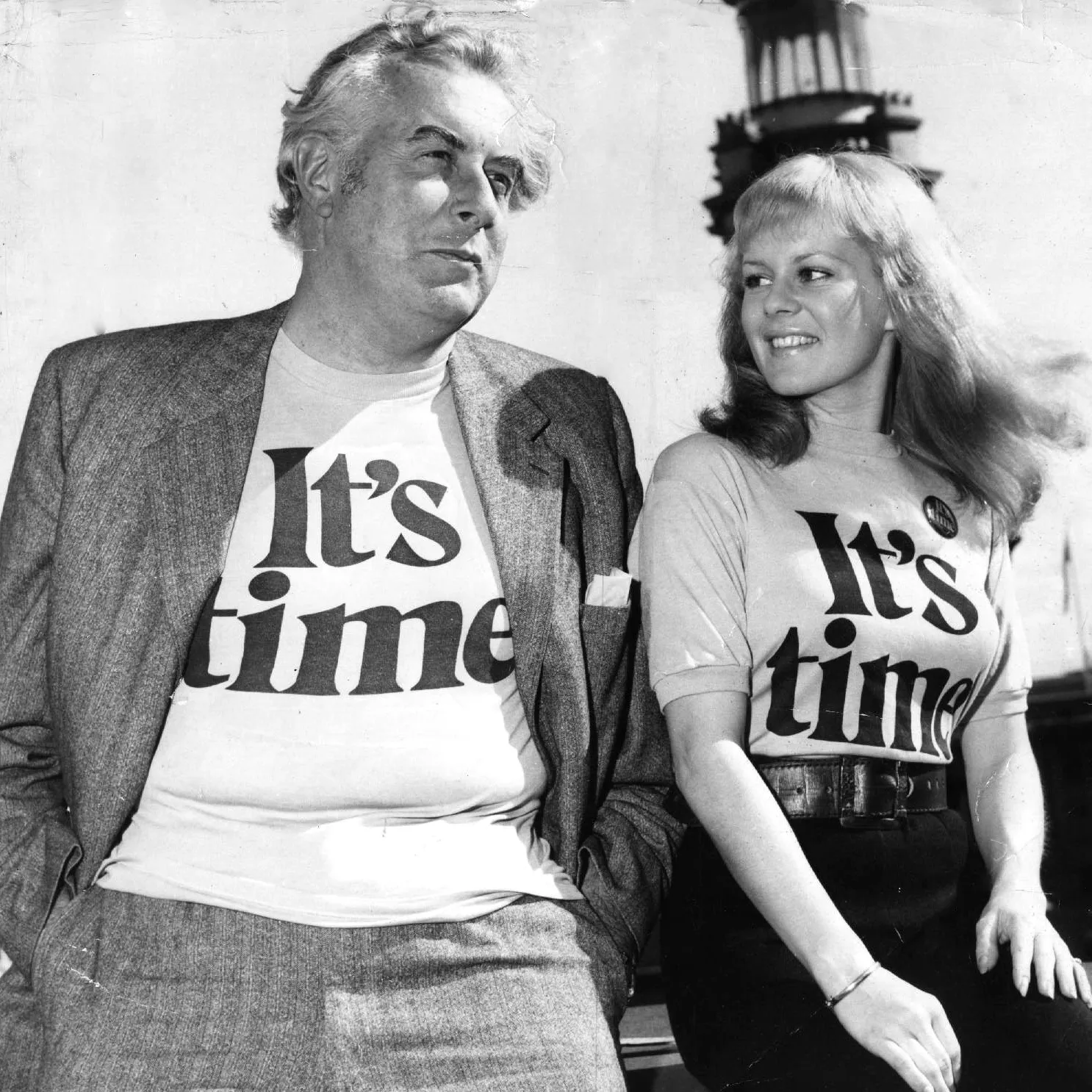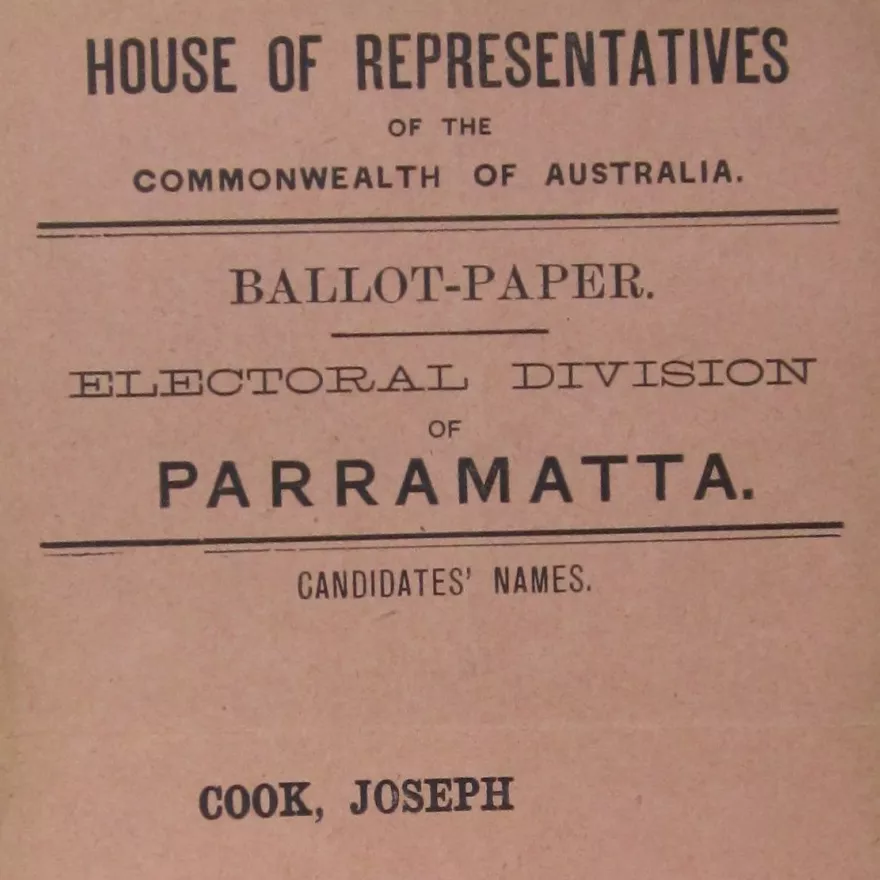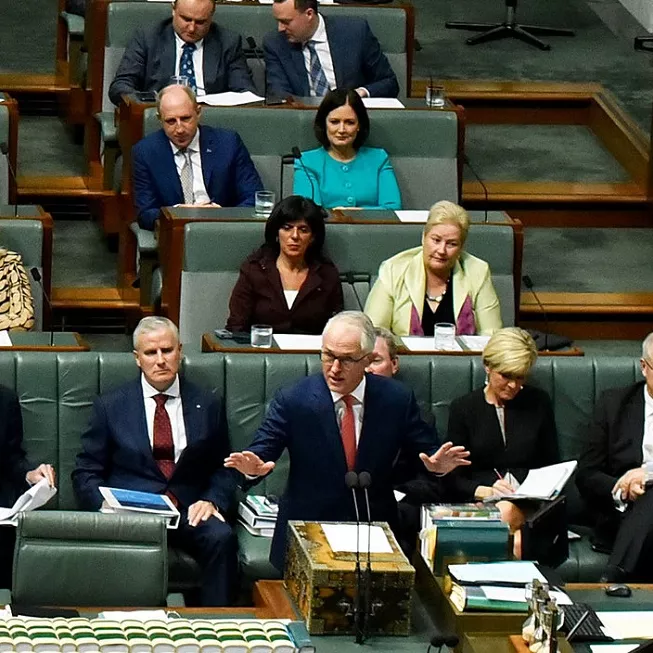A perfect dress rehearsal for the grand opening of Parliament House
- DateFri, 14 Oct 2016
When you’re running a major event nothing is more useful than the chance to have a decent rehearsal.
The Federal Capital Commission, charged with the opening ceremony for Old Parliament House on 9 May 1927, must have thanked their lucky stars when they got to do a full dress rehearsal with the unveiling of the Speaker’s Chair in the House of Representatives Chamber on 11 October 1926. It was perfect. Same venue, many of the same guests, arrival by train, cars to convey the dignitaries, driving routes to map, menus to plan, speeches to deliver, broadcasting to test. Ideal.
It all began with a gift to the Australian Parliament from the members of the House of Lords and Commons who constituted the United Kingdom Branch of the Empire Parliamentary Association. The gift was a richly symbolic and faithful replica of the Speaker’s Chair that sat in the House of Commons in Westminster and was destined for the House of Representatives in the newly-built Parliament House. The flat-packed chair had been carefully conveyed from the United Kingdom on the Australian Commonwealth Line steamer Hobson’s Bay. Unpacked and assembled, the towering 3.8-metre Chair, redolent with symbolic ties to the Parliament of the United Kingdom and its tradition of democracy, dominated the Chamber.
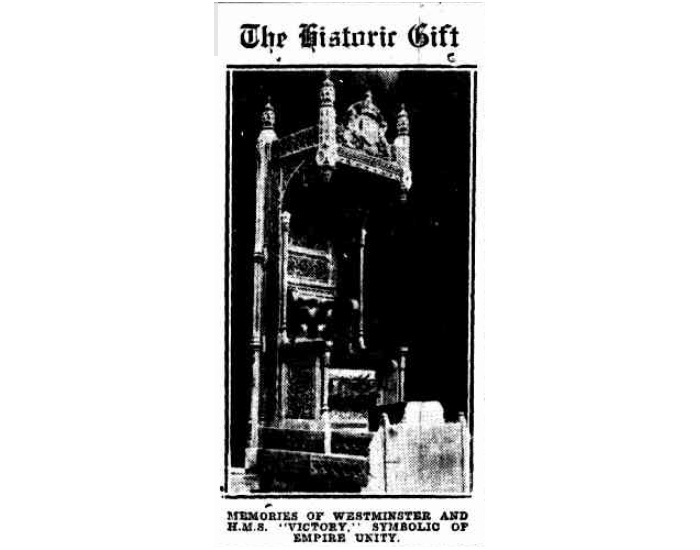
The newly assembled Speaker’s Chair, a symbolic gift of independence from the Empire Parliamentary Association. Credit: Canberra Times, 14 October 1926, p 1.
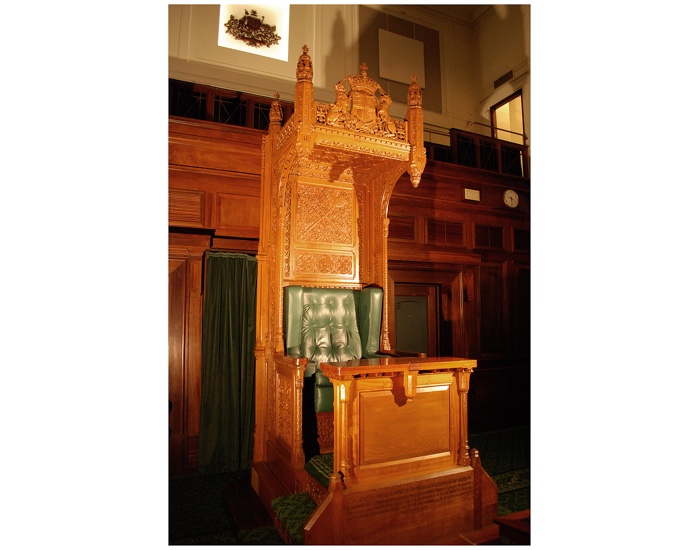
The glowing Speaker’s Chair in the House of Representatives Chamber today. The functional desk was added soon after the unveiling. Credit: MoAD collection.
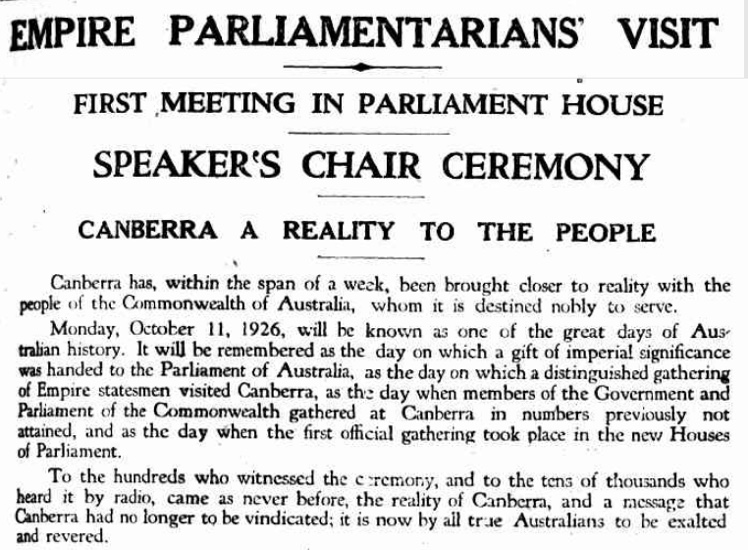
The visit by the Empire Parliamentary Association for the unveiling of the Speaker’s Chair was front page news in the Canberra Times on 14 October 1926. Credit: Canberra Times, 14 October 1926, p 1.
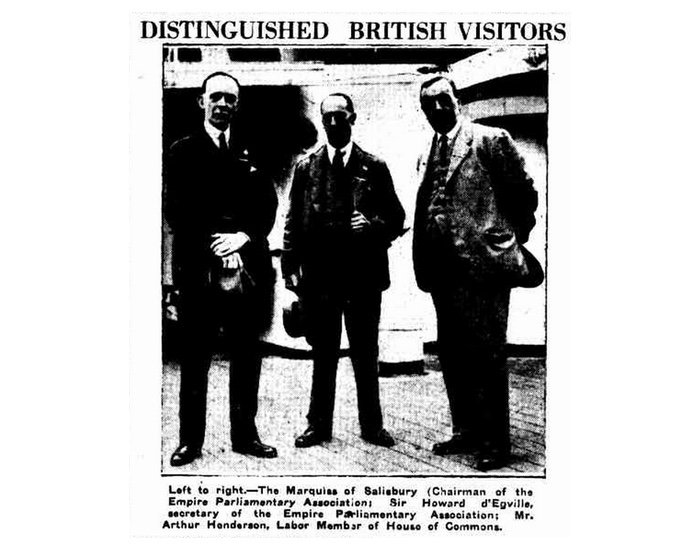
This photograph of the distinguished guests appears to have been taken inside the still unfinished Parliament House. Credit: Canberra Times, 14 October 1926, p 9.
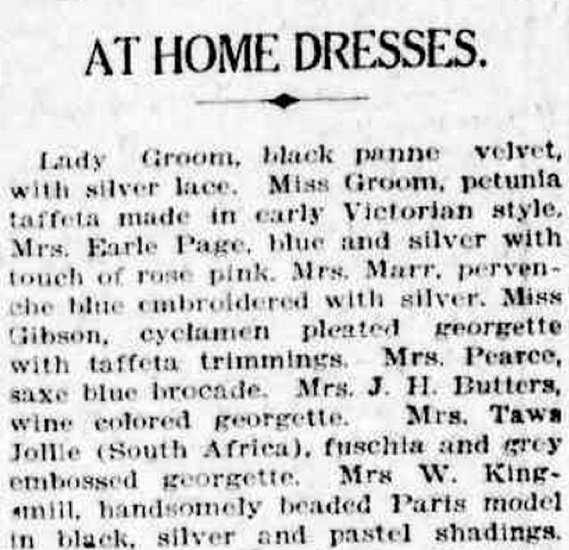
One of the reporters at the Canberra Times clearly knew their fabrics with an extraordinary 12 column inches dedicated to a description of the dresses worn at the ‘At Home’ hosted at Hotel Canberra. Canberra Times, 14 October 1926, p 3.
So, now it was time for the gift giving. The guests arrived by train on the morning of 11 October 1926. The delegation from the Empire Parliamentary Association numbered 68 and was joined by representatives from the State parliaments and more than 90 Senators and Members. The delegation had a jam-packed three day schedule – a prefect test for event logistics before the much anticipated visit by the Duke and Duchess of York in May 1927. Plenty of time to iron out any wrinkles.
The day began with breakfast at Hotel Canberra followed by a short stroll in brilliant sunshine to Parliament House. The visitors sauntered past 65,000 tulips blooming in the grounds of the hotel and the Canberra Times poetically reported that the flowers ‘held up to the invigorating sun and air of this elevated situation, delicate petals of every hue…’. Floriade anyone? The group were greeted by Guard of Honour of boy scouts on the steps of Parliament House – no doubt all scrubbed up for the occasion – and the President of the Australian branch of the Empire Parliamentary Association and Speaker, Sir Littleton Groom, and President of the Senate, Senator John Newlands – no doubt similarly scrubbed. Progress on the building was inspected with the Canberra Times noting that there was ‘considerable labour’ required to finish the building but that enough had been done to ‘convey a complete idea of the finished state’. Phew. Worth noting that the statue of George V was still lying on the floor of King’s Hall in a case and the niches for the bas reliefs were bereft of their sculptures.
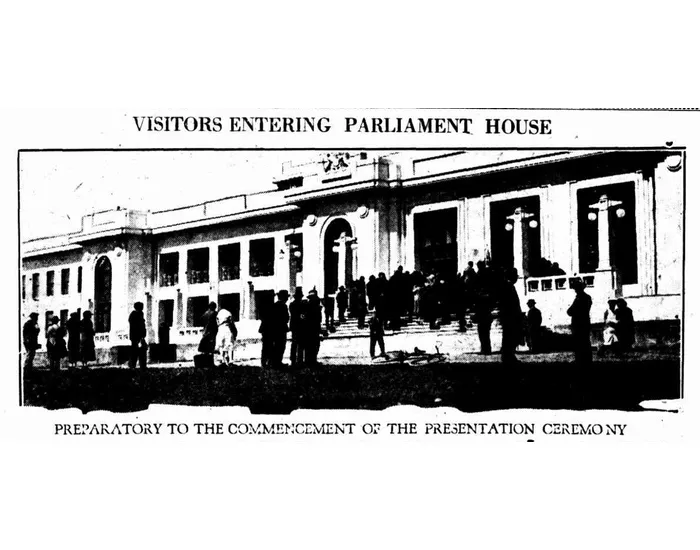
Visitors for the ceremony converge on an almost complete Parliament House. Credit: Canberra Times, 14 October 1926, p 8.
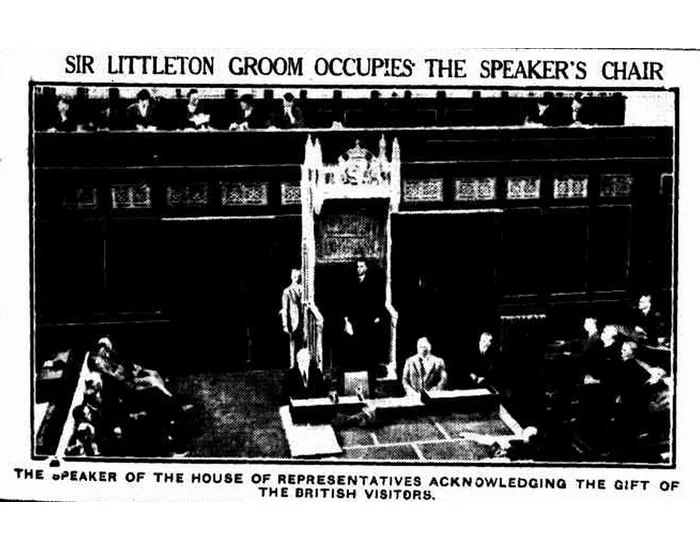
Speaker Sir Littleton Groom delivers his acceptance speech to the visitors and journalists. Credit: Canberra Times, 14 October 1926, p 1.
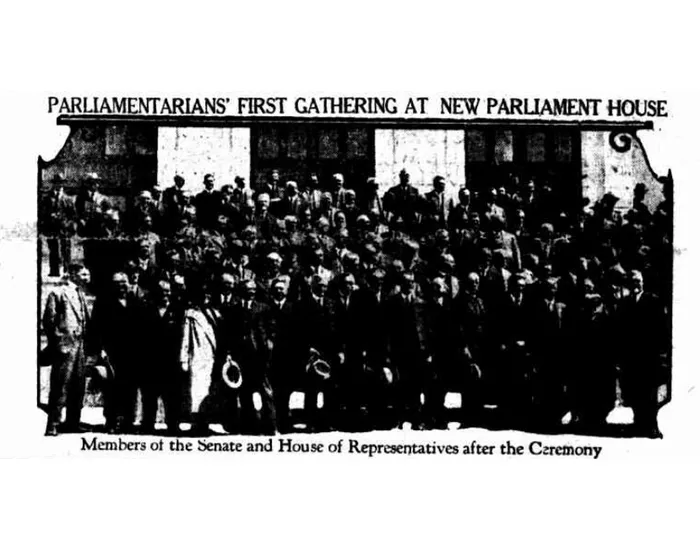
Parliamentarians gather in the brilliant Canberra sunshine on the front steps of Parliament House after the ceremony. Credit: Canberra Times, 14 October 1926, p 1.
Replete with morning tea, the visitors descended to the courtyards for some light gardening with the planting of Lombardy poplars in the courtyard by the Marquis of Salisbury, Chairman of the Delegation, and Mr Arthur Henderson, Chief Labour Whip in the House of Commons. Back upstairs and the visitors settled into the Chamber for the formalities. The Marquess of Salisbury did the official handover reading a letter from British Prime Minister Stanley Baldwin and presenting an illuminated scroll listing the subscribers to the gift. Then, with a tug on a green silken cord, the immense Union Jack and Commonwealth flags rippled to the floor and the extraordinary and emblematic chair was revealed. Speaker Sir Littleton Groom solemnly ascended the steps amid cheers from the assembly, sat down on what he said would be one of the ‘treasured possessions of the Nation’ and launched into his acceptance speech. Acting Prime Minister Earle Page and Leader of the Opposition, Matthew Charlton, added their thanks with many references to the ‘Mother of Parliaments’, the ‘mother country’ and Australia as the ‘child’. Terms and concepts that sound odd to us now but were commonplace then. The ceremony concluded with much clapping and cheering and the rousing strains of the National Anthem.
This event was also a great chance for the media to practice their art. The journalists of the Canberra Times covered the ceremony in exhaustive detail and it was broadcast to tens of thousands of Australians via their wirelesses and filmed for posterity.
All in all a great dress rehearsal which appears to have gone swimmingly.

